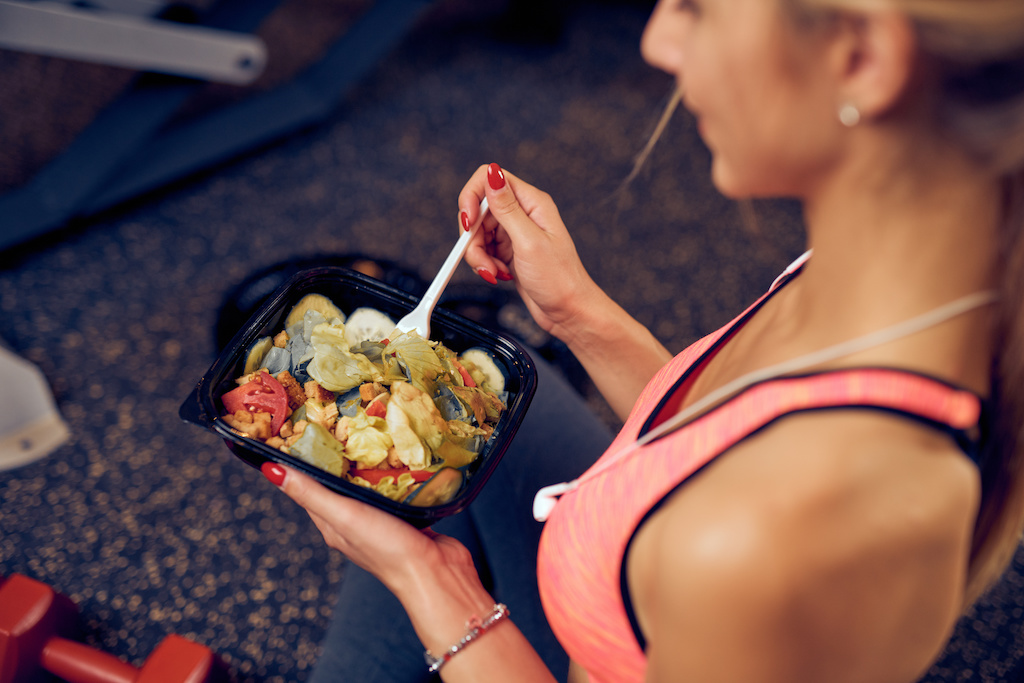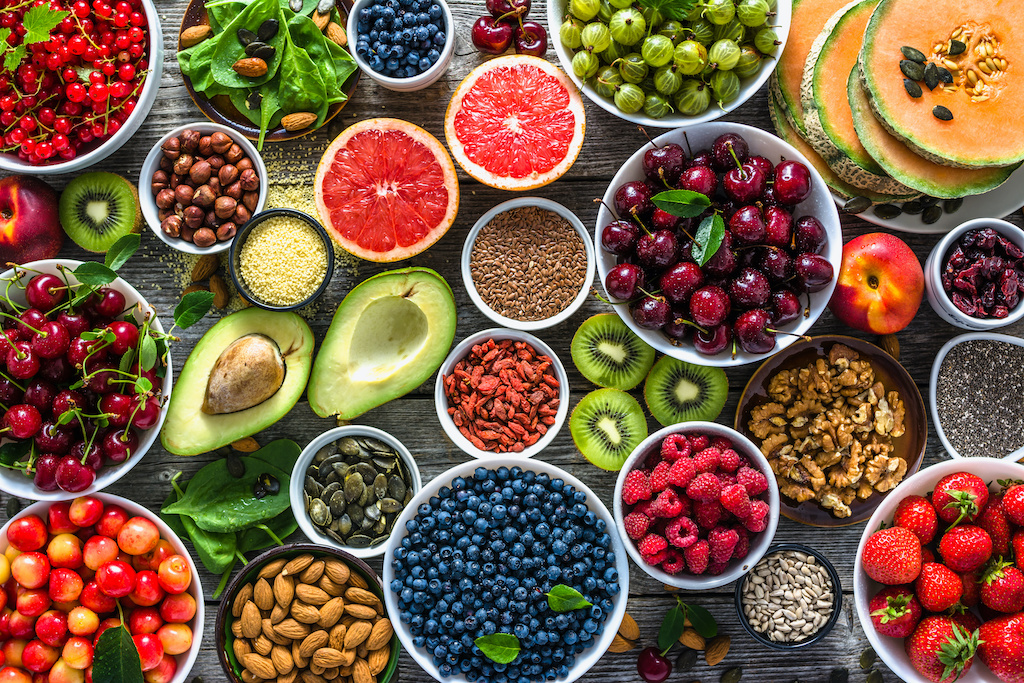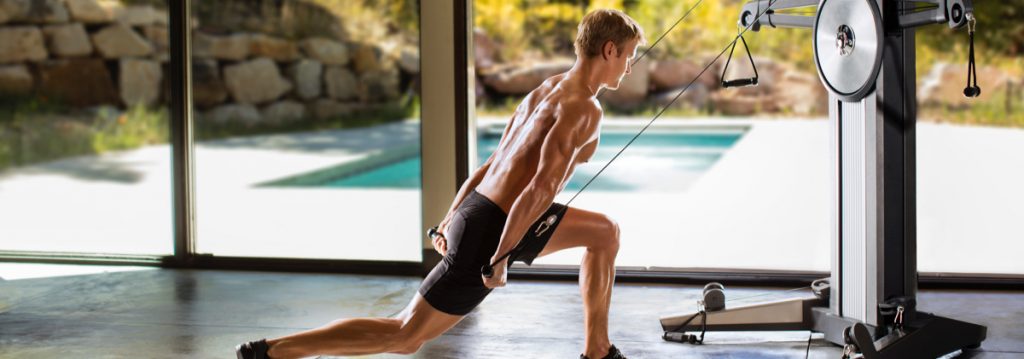There are different diets to provide the body with what it needs. Which are the most suitable for a sports nutrition programme? Find out how to combine performance and nutritional balance and develop your personalised plan according to your preferences and activities.
A balanced diet: Definitions and basic rules

Balancing your diet is possible, whatever the chosen regime: Create a healthy sports nutrition programme adapted to your physical activity.
Different diets
Diets are defined by the way of eating. The most common are:
- An omnivorous diet, without any particular restrictions: Meat, dairy products, fruit, vegetables, fish, eggs, etc.
- A vegetarian diet, excluding meat and meat products. Generally, eggs and dairy products are allowed.
- A vegan diet, which prohibits the consumption of any food of animal origin: Meat, dairy products, eggs, honey, etc.
- A gluten-free diet, often started due to a digestive problem, such as celiac disease. It rules out foods containing gluten, which is present in certain cereals, such as wheat and barley.
- A paleo diet, which includes only unprocessed ingredients. It can be combined with vegetarianism.
There are other diets, for example, those without salt or sugar. Certain dietary restrictions may be applied temporarily, in connection with a particular state of health or specific objectives: Weight gain, weight loss, detox, and others.
5 nutritional recommendations for eating well
Here are 5 tips to adopt a balanced diet:
- Vary your meals.
- Choose home-cooked meals with fruit, vegetables, pulses and nuts, rather than processed food or fast food.
- Switch to healthy foods, such as wholemeal pasta or wholegrain rice, organic products, local and seasonal ingredients, and so on.
- Limit your consumption of soft drinks, stimulants, alcoholic beverages and sweet, fatty or salty products.
- Don’t overindulge in meat products and eat fish, alternating between fatty and lean fish.
With a diverse diet, you can provide the body with the nutrients it needs and reduce the risk of deficiencies.
Determine energy inputs based on body shape and activity

Regulating your nutritional intake is essential for being in good shape and achieving good performance.
To find out how many calories you need to absorb on a daily basis, work out two calculations, corresponding to your basic metabolism and your energy expenditure level.
Calculate your basic metabolism according to your weight, height and age
A formula makes it possible to estimate the energy required for basic metabolism, i.e. the energy the body needs to function (digesting, sitting or standing, breathing, sleeping, etc.) without counting physical activity:
- For a man: (weight in kg multiplied by 13,397) + (height in metres multiplied by 479,9) – (age multiplied by 5,677) + 88,362
- For a woman: (weight in kg multiplied by 9.247) + (height in metres multiplied by 309.8) – (age multiplied by 4.33) + 447,593
This calculation gives for example:
- 1358 calories for a 38 year old woman weighing 61 kg and measuring 1.65 metres tall.
- 1716 calories for a 50-year-old man weighing 80 kg and measuring 1.75 metres tall.
Calculate your energy expenditure to balance your diet
Sport and exercise require extra calories. Multiply the results of the basic metabolism calculation by a coefficient according to your degree of physical exertion to find out how many calories your body needs each day:
- Sedentary: 1.3
- A little active: 1.375
- Moderately active: 1.55
- Intensely active: 1.725
- Very intensely active: 1.9
For example, a moderately active man with a basic metabolic rate of 1716 calories has a daily requirement of 2660 calories.
Sports nutrition: Develop your personalised plan

Diet and physical performance are closely linked: Adapt your meals according to your diet and your sports goals.
What nutrients help to improve sports performance?
Here are the basic principles for obtaining good performance:
Balance the ratio of these 3 macronutrients in your sports nutrition:
- 50 to 55% carbohydrates
- 10 to 15% protein
- 35% fats
- For endurance sports, add more carbohydrates for energy.
- To lose weight or gain muscle, increase the proportion of protein.
- Limit rich pre-workout meals.
- Certain foods, such as fatty fish (salmon, tuna, herring, etc.), eggs, oat flakes, bananas, almonds or dark chocolate are particularly popular with sportsmen and women.
Adapting sports nutrition to your diet
Depending on your diet, nutritional intake will come from a variety of foods:
- In a gluten-free diet, rice and sweet potato are important allies in providing carbohydrates.
- Eggs are valuable for enriching the diet of vegetarians with animal proteins.
- By consuming legumes and soya, vegans can sometimes supplement their diet with amino acids not present in vegetable proteins.
- In a paleo diet, which is relatively low in carbohydrates, energy is mainly drawn from fat: During competitions or intense activities that make the body work at more than 85% of the maximum heart rate, it is often recommended to consume more carbohydrates, for example from tubers or root vegetables.
Check out our Health & Fitness page for more advice.
